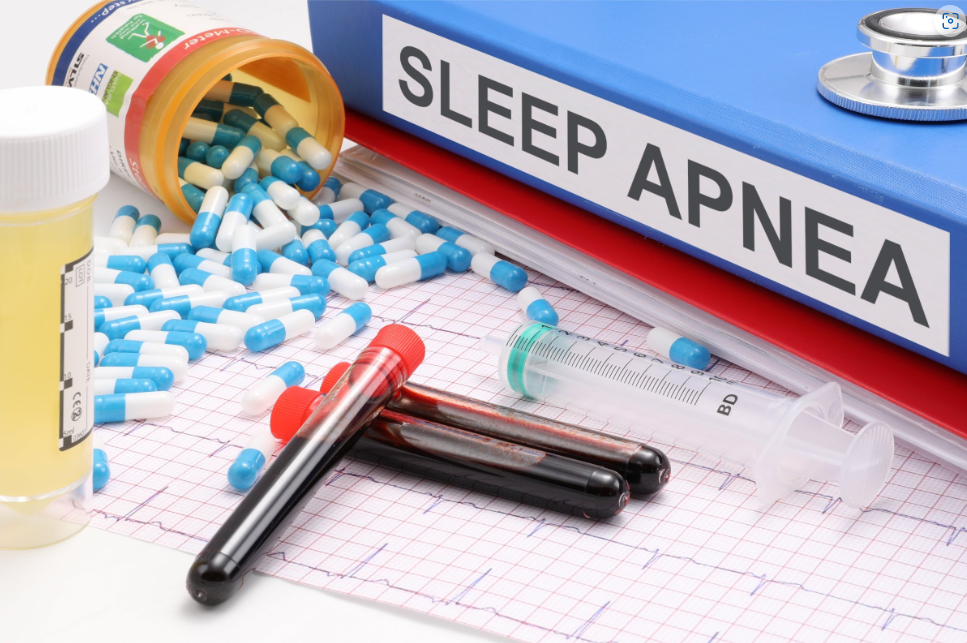

Do you suddenly wake up from your sleep and feel breathless, dizzy, or something along the lines? It could be due to sleep apnea. Let's help you learn more about it so that you can diagnose it better and visit a sleep specialist today!
Sleep apnea is a sleeping disorder, and while it seems like no big deal, it can be quite serious. It occurs when you're sleeping, and suddenly your breathing gets disrupted. Your body could stop breathing for a moment. There could be a blockage in the airways or the throat.
Primarily, sleep apnea can cause you to snore loudly. But it can quickly become worse to cause you headaches when you wake up. You could also feel tired and have daytime sleepiness. All these happen even when you think you had a good night's rest. And that's why it is one of the worst kinds of sleep disorders.
Untreated sleep apnea can lead to heart problems, strokes, blood pressure, organ failure and more. Your blood oxygen levels could drop drastically, as well. Maintaining optimum air pressure is also essential to prevent asphyxiation. Of course, your partner won't be happy with you snoring so loudly, either.
There are three different types of Sleep Apnea. Let's take a brief overview:
Obstructive sleep apnea syndrome is more common out of the three. It occurs when something obstructs your breathing pattern. Obstructive sleep apnea occurs when your throat muscles have weak tissues that collapse while you're asleep. The tissue blocks the airways.
However, it could also be because of the blockage in your nose or airways in general. Nose allergies and dry mucus could also be the reason. Sometimes your tongue falls on the throat and blocks it, which can lead to obstructive sleep apnea.
Central sleep apnea happens due to neurological reasons. It is common in people that have suffered a stroke, brain injury, chronic lung disease, or kidney issues. In this case, there isn't any blockage, but your respiratory system (breathing) could stop for a short time after you fall asleep.
This increases the risk factors associated with sleep apnea.
This is a mix of obstructive sleep apnea and central sleep apnea. Complex sleep apnea is also known as treatment emergent central sleep that requires utmost care and immediate treatments.
People that develop sleep apnea will start to show the following symptoms:
Loud snoring and they might not be aware of it, but their partners may be.
Dry mouth and sore throats are among the common issues for sleep-disordered breathing.
Daytime fatigue, sleepiness, and confusion.
Lack of focus, productivity, and attention. Haziness, confusion, etc.
Sweating during the night.
Urge to go to the bathroom (pee) during sleep.
Waking up suddenly feeling breathless.
For people with central sleep apnea CSA, other symptoms may be:
Breathing through mouth while awake.
Bedwetting.
Trouble concentrating.
Trouble swallowing anything.
Opposite movement of ribs while inhaling (inwards movement) and exhaling (outwards movement).
Undiagnosed sleep apnea can lead to many more issues. However, treatment for sleep apnea depends on the specialists. Most doctors will focus on the following:
Losing weight as weight loss can help with sleep apnea.
Prescribing Continuous positive airway pressure CPAP machine (oral appliances) to prevent sleep apnea.
If CPAP machines don't work, they might suggest other airway pressure devices for narrowed airways.
They would rarely prescribe clinical sleep medicine as your body might not wake up to breathe at the right time.
There are other diagnoses that one might require. There could be mild sleep apnea, moderate sleep apnea, to severe sleep apnea.
Similarly, you have it in obstructive sleep apnoea. There's mild obstructive sleep apnea, moderate obstructive sleep apnea, and severe obstructive sleep apnea OSA. Once the experts diagnose sleep apnea, they can provide the right kind of treatment options for you.
Healthy sleep is important, and if you feel that you have a restless sleep or other sleep disorders, you should get it checked. Otherwise, you have an increased risk of high blood pressure, low breathing, and oxygen levels. Remember that most people with sleep apnea don't find it out until it's way late when treating sleep apnea might even require surgery. So, with all the risk factors sleep apnea can cause, it is better to visit a specialist today and get it checked.
Leave a comment